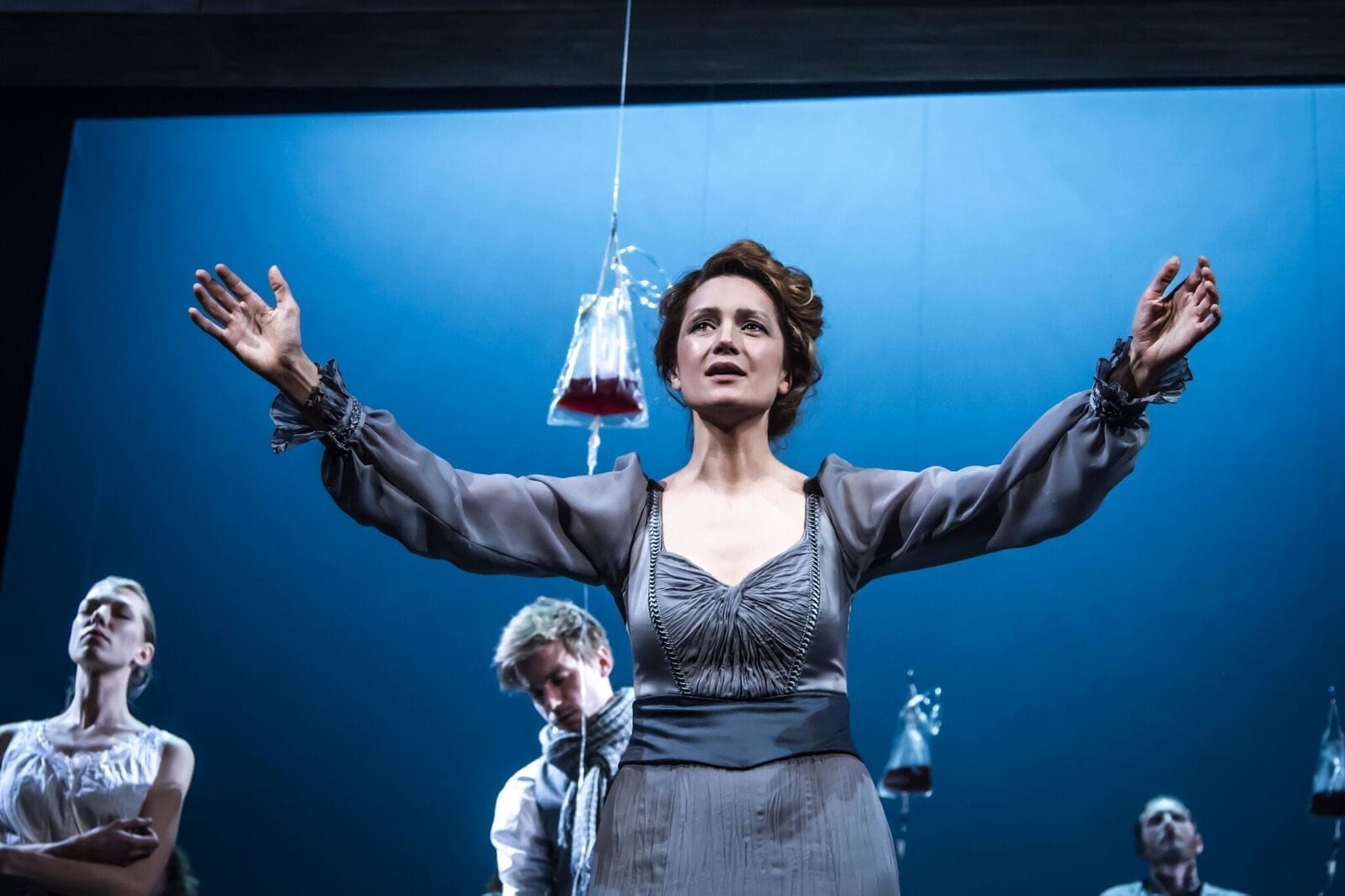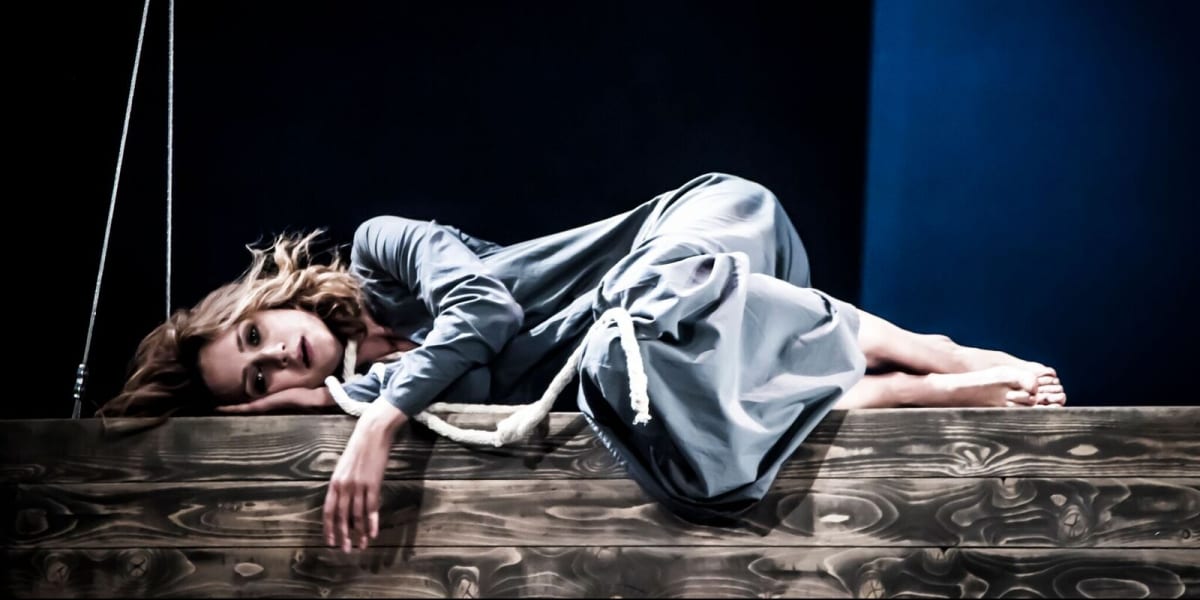It is very unique experiencing a play in the language in which it was written, performed in a much more freeing way than the ‘naturalistic’ form in which Chekhov’s plays are normally presented.
The Moscow Pushkin Drama Theatre is one of the world’s leading theatre companies and it is such a thrill to be able to see their Cherry Orchard in London. Their production is fresh, exciting, contemporary, and yet classic.
What makes the production stand out is the amazing ensemble of talented actors. They perform with tremendous energy and immediacy. There are moments of beautiful tension and heightened physicality where a gesture is prolonged in such a way that time pauses for a second and we can feel the passion between two characters. Symbolism is the key in this production: the minimal set which foreshadows mortality and decay is a constant reminder of looming disaster. Not many props are used, not many ‘real objects’ are around, and this becomes more and more interesting. The expressionistic details in the acting, in addition to the symbolic details of the set design, create a piece which raises a distorting mirror in front of the audience. Chekhov himself has spoken about the need to allow an audience to use their imagination in the theatre through the use of artifice. It is beautiful seeing Chekhov done differently; with more space, exaggeration, and grace.
The polyphonic quality of the ensemble truly brings the whole piece together. All theatre ought to be physical – but this particular version is not just physical, but also reliant on heightened gestures, and movement sequences. The scene of the ball is choreographed in detail and presents the whole ensemble manically dancing together. It is energetic and striking – despite it being a different kind of ball!
A trio of musicians (playing many instruments, such as a cello, keyboard, mandolin, guitar) are constantly on the side of the actors, supporting and highlighting key moments. The beautiful tunes add something symbolically ‘Russian’ to the piece and provide a link to Chekhov’s era.
The Cherry Orchard was written on the cusp of the 20th century, depicting a transitional period between the end of a century – the end of an era – and the beginning of a new one. It was a period of much uncertainty – before the Russian Revolution. Chekhov was writing about a period which was governed by uncertainty and a sense of dread. His time does not feel much different to our time perhaps. Chekhov’s characters are filled with despair and disappointment, and yet – despite how much they are dreading their lives – they do nothing in order to change it. Lyobov Ranevskaya, played beautifully by Victoria Isakova, is told again and again that she is losing the cherry orchard and yet she never does anything in order to change the situation.
The play is a tragicomedy – and this production truly highlighted Chekhov’s unique humour which stands masterfully on top of his incredibly bleak and melancholic setting. Not all of the choices were as strong – and the final scene could have been so much more powerful if Firs had been left completely on his own – but it is a production certainly worth seeing and a company worth keeping an eye on.

